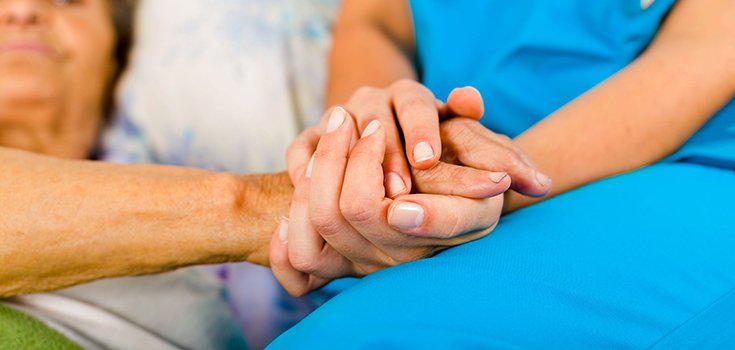New Report: Those with Common Types of Cancer Can Expect to Live 10 Years

While cancer once used to be a death sentence, new reports from the United Kingdom show that the majority of those diagnosed with common cancers can expect to live at least 10 years after their initial diagnosis.
Those with skin cancer are the most likely to live for 10 years after being diagnosed, with a whopping 89.4% of patients making it to the mark. About 80.6% of women diagnosed with breast cancer can expect to live 10 years post diagnosis, and 79% of men with prostate cancer share the same life expectancy. [1]
However, the prognosis is still often grim for other types of cancer. Less than 12% of those with brain cancer will live 10 years, only 5.7% of people diagnosed with pancreatic cancer will live the same length of time, and 9.8% of those with lung cancer will live for at least 10 years.
From 2009-2013, over 96% of women in the United Kingdom survived with breast cancer for at least a year, with 86.7% surviving over 5 years. This represents the largest pool of survivors on record, which emphasizes that many diagnosed with common forms of cancer can expect to live a longer life expectancy than they may have once had.
Better quality of care and advancements in medication are credited for the uptick in survival rates.
Read: Cancer Breakthrough – Blood Test Detects ‘Cancer Symptoms’ 10 Years Before they Begin
However, the data also shows that age can also play a factor. Over 90% of men who are diagnosed with prostate cancer in their 50’s can expect to live at least 10 more years. But the 10-year survival rate for men diagnosed in their 80’s plunges to 56.7%. Similarly, 86.8% of women in their 50’s diagnosed with breast cancer will live for at least another 10 years, contrasted with 54.1% of those diagnosed in their 80’s. [2]
Macmillan Cancer Support, a charity that works with those with cancer and their families in the United Kingdom, warns that this shift in survival rates means that the needs of patients are changing. Cancer is now becoming a long-term, costly condition instead of an acute disease.
Lynda Thomas, chief executive of the charity, stated:
“Surviving is not necessarily the same as living well, and too many people with cancer miss out on the support they badly need once treatment has finished. While today’s figures are to be celebrated, they should also act as a warning that as the number of long-term survivors increases, we will need a health service that is able to cope with this increasingly complex situation.” [1]
In light of the increased survival rates, cancer charities say they will now begin focusing on how to better support cancer survivors. Let’s hope we can rid the charity industry of corruption so that they can truly bring benefit for cancer sufferers.
Sources:
[1] The Guardian
[2] The Telegraph
